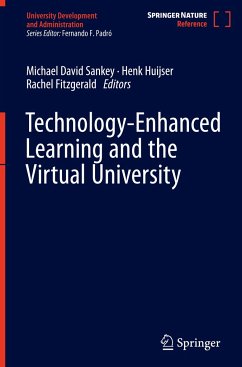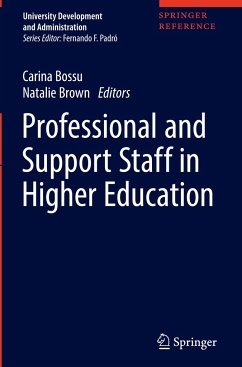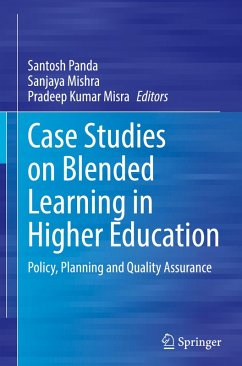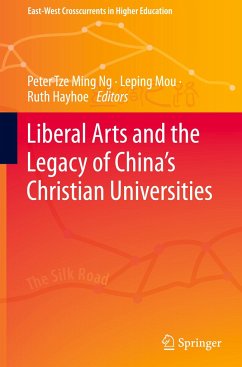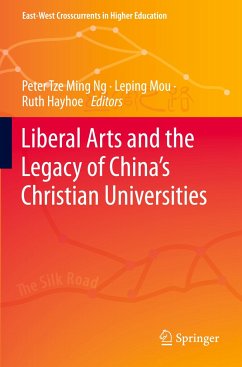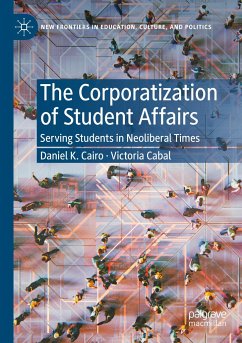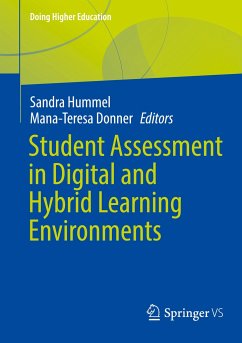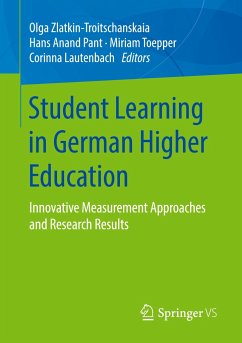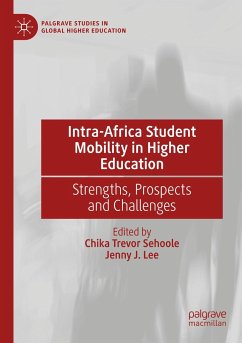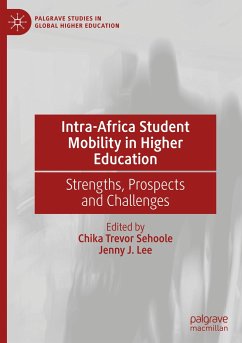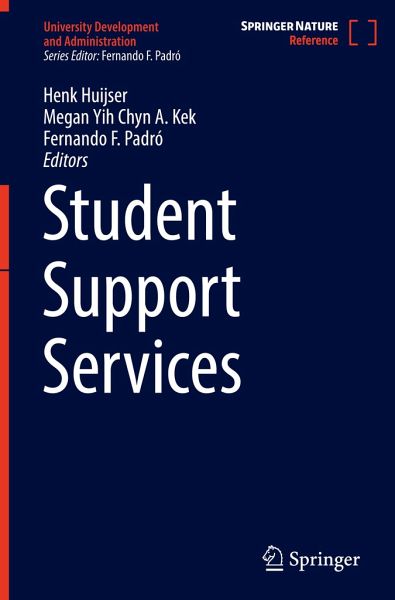
Student Support Services
Versandkostenfrei!
Versandfertig in 1-2 Wochen
229,99 €
inkl. MwSt.

PAYBACK Punkte
115 °P sammeln!
This volume Student Support Services: Exploring impact on student engagement, experience and learning, covers a wide and diverse range of higher education contexts to explore the current state and the future of student support services. The central focus for all the chapters is about what, why and how to achieve student success within an intricate and complex web of learning ecologies, often invisible to the naked eye but interconnected within and between each other. This has profound impacts on students, often characterised by an ongoing tension between students as learners and students as co...
This volume Student Support Services: Exploring impact on student engagement, experience and learning, covers a wide and diverse range of higher education contexts to explore the current state and the future of student support services. The central focus for all the chapters is about what, why and how to achieve student success within an intricate and complex web of learning ecologies, often invisible to the naked eye but interconnected within and between each other. This has profound impacts on students, often characterised by an ongoing tension between students as learners and students as consumers. With over 40 chapters, the book is divided into two sections. Part 1 is a conceptual section, which explores a multitude of worldviews about the ways in which student support services have impacted and may impact on student engagement, experience and learning. This includes discussions about the tensions and opportunities that arise from the curricular, co-curricular, and extra-curricular conceptualisations of students support services. The discussions come from the vantage point of different ecologies within and between universities and student support services' impacts, both intentional and accidental, on the development of students, their transformation as learners and as contributing members of the workforce. For example, this covers disruptive technologies and online approaches, university mission and purpose, worldviews and paradigms held by student support and services units, motivation, student retention, and sense of belonging. Part 2 is a practice-based section with reflections and case studies, again from a wide variety of different higher education contexts. This section dives into the how - approaches, solutions, processes - deployed by universities to respond to their identified and often contextualised student support and services challenges. This section provides a rich library of possible ideas that readers can reimagine to manage and/orsolve their student support and services challenges and problems.
In the context of widening participation agendas and an increasingly demand-driven higher education sector, combined with ever-tighter public funding streams and turbulent socio-political environments, the higher education sector has had to step up its game in attracting students and diversify its approaches and strategies. As part of recruitment strategies and marketing campaigns, it has become common to approach potential students as 'customers'. Transaction as a form of two-way (beneficial) engagement has given way to transaction as an exchange for a service or a good focused on order, structure and risk aversion. This book explores whether this is a productive way of approaching it. At the same time, the impact of COVID-19 has drawn further attention to the challenges of creating a sense of community, sense of belonging, personal identity and engagement within the university environment, especially for those not habitually and constantly on-campus. The difficulty of commuter students more fully engaging with university curricular and co-curricular programs remains, especially as students have to spend more of their time working to meet direct and indirect costs of partaking in university studies. Thus, student identity, in terms of being (or becoming) an integral member of the university community, and co-and extra-curricular engagement that enhances the learning of online students are increasingly important areas for universities to pay attention to, and this book shows different pathways - both worldviews and practices - in that respect.
In an increasingly complex higher education environment, student support services find themselves in an interesting, yet often contradictory, position of having to provide a 'customer service' while also 'developing students' throughout their learning journeys within the university, and their future readiness beyond the university, which is increasingl
In the context of widening participation agendas and an increasingly demand-driven higher education sector, combined with ever-tighter public funding streams and turbulent socio-political environments, the higher education sector has had to step up its game in attracting students and diversify its approaches and strategies. As part of recruitment strategies and marketing campaigns, it has become common to approach potential students as 'customers'. Transaction as a form of two-way (beneficial) engagement has given way to transaction as an exchange for a service or a good focused on order, structure and risk aversion. This book explores whether this is a productive way of approaching it. At the same time, the impact of COVID-19 has drawn further attention to the challenges of creating a sense of community, sense of belonging, personal identity and engagement within the university environment, especially for those not habitually and constantly on-campus. The difficulty of commuter students more fully engaging with university curricular and co-curricular programs remains, especially as students have to spend more of their time working to meet direct and indirect costs of partaking in university studies. Thus, student identity, in terms of being (or becoming) an integral member of the university community, and co-and extra-curricular engagement that enhances the learning of online students are increasingly important areas for universities to pay attention to, and this book shows different pathways - both worldviews and practices - in that respect.
In an increasingly complex higher education environment, student support services find themselves in an interesting, yet often contradictory, position of having to provide a 'customer service' while also 'developing students' throughout their learning journeys within the university, and their future readiness beyond the university, which is increasingl



